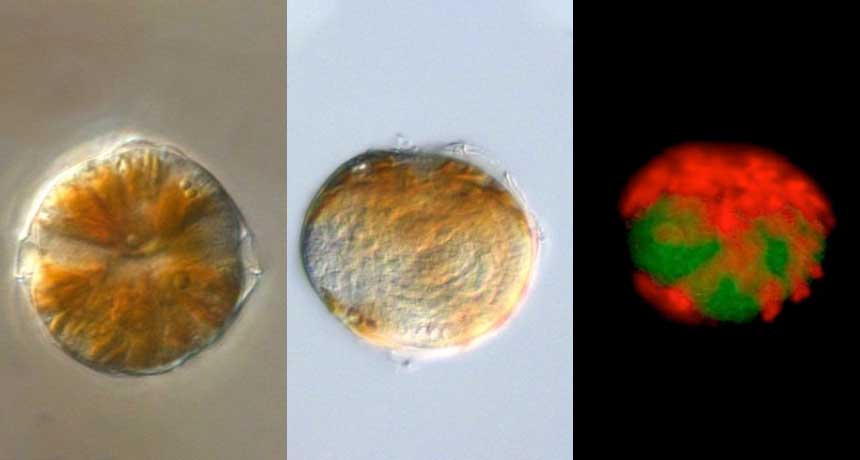
https://www.sciencenews.org/article/marine-parasite-mitochondria-no-dna-energy
Related Article:
Amoebophyra ceratii is a parasitic plankton that seemed to have transferred all of its own mitochondrial DNA to its nucleus. This parasite infects algae that can cause toxic blooms (when algae grow out of control and produce toxic or harmful effect on people, fish, birds, etc). A. ceratti is the first discovery in which scientists have found an aerobic organism with fully functional mitochondria that do not have any mtDNA. This parasite has two mitochondria during the free-living stage of its life cycle and both organelles are able to produce energy. Researchers could not spot any DNA inside the mitochondria, but they found the genes for the mitochondrial function inside the organism's nucleus. They concluded that these genes made it possible for the tiny energy factories inside the mitochondria to keep producing energy after they lost their DNA.
I found this article to be interesting because I have never thought that transferring an organism's own mtDNA could be possible. Also, the fact that the parasite is still functioning surprises me. The thing is that the parasite is more dependent on its host because of its lack of mitochondrial genome in which I do not find advantageous.
I found this article to be interesting because I have never thought that transferring an organism's own mtDNA could be possible. Also, the fact that the parasite is still functioning surprises me. The thing is that the parasite is more dependent on its host because of its lack of mitochondrial genome in which I do not find advantageous.
No comments:
Post a Comment